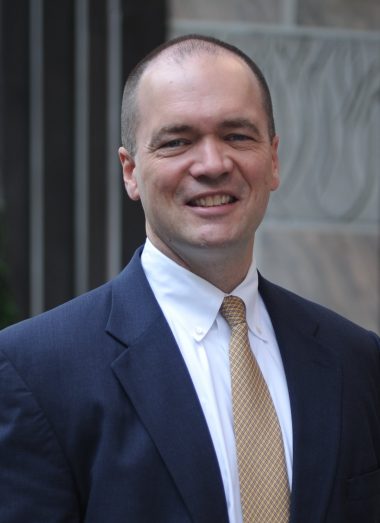In Charlotte Observer and Winston-Salem Journal op-ed articles, Elon Law Professor Scott Gaylord disputes recent requests for N.C. Supreme Court Justice Paul Newby to recuse himself from an upcoming case.

In the Winston Salem Journal op-ed, entitled, “Scott Gaylord looks at judicial bias, recusal and Justice Paul Newby,” and the Charlotte Observer op-ed, entitled, “A Newby recusal on redistricting would set bad precedent,” Gaylord argues that it is not necessary for Newby to recuse himself.
Recent calls for Newby’s recusal come from various groups that are challenging the legislature’s redistricting plan.
“Because Newby benefited from independent expenditures by conservative-leaning super PACs, these groups contend that Newby’s participation in the case threatens the court’s integrity” Gaylord writes.
However, Gaylord believes that recusal in this case is, not only unnecessary, but that it would set bad precedent.
“The super PACs that made independent expenditures to reelect Justice Newby, however, do not have any personal stake in the redistricting case. Nor is it clear that any one super PAC — let alone any individual donor — had a disproportionate effect on the election,” Gaylord writes.
According to Gaylord, neither the U.S. Constitution nor the 2009 Supreme Court case, Caperton v. A. T. Massey Coal Co., require Newby’s recusal.
“The Court has found that the due process clause of the Fourteenth Amendment mandates recusal only in two circumstances: when a judge has a personal financial interest in a case and when she hears certain criminal contempt proceedings. The redistricting litigation involves neither situation,” Gaylord writes. “In 2009, the Supreme Court held that recusal is also necessary under due process if a ‘disproportionate’ campaign expenditure ‘creates a probability of bias.’”
Professor Gaylord writes that the situation involving Justice Newby does not violate the due process clause or meet the “extreme cases” standard set in Caperton. He believes such a recusal would lead to an increase in judicial bias claims and impact future appointees.
“The public trust in the judiciary is preserved by the electorate’s participating in the judicial selection process and by limiting recusal to ‘extreme cases,’” Gaylord writes. “Justice Newby’s reelection does not present such a case.”
By Courtney Roller L’13


